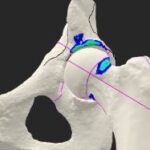 For patients who require rehabilitation following orthopedic surgery, illness, injury, or for certain chronic conditions, aqua therapy in warm water can make a difference.
For patients who require rehabilitation following orthopedic surgery, illness, injury, or for certain chronic conditions, aqua therapy in warm water can make a difference.
Plaza Health Network in South Florida recently launched aqua therapy services at its University Plaza rehabilitation and skilled nursing center, located in the heart of the health district near downtown Miami. At University Plaza, each individual candidate is evaluated before starting aqua therapy.
Aqua therapy offers multiple benefits for the right candidates. Less pain during rehab, a speedier recovery, and – for someone with limited physical endurance on land – the opportunity to perform more beneficial strength training or walking exercises.
In addition to taking pressure off the joints and body through greater buoyancy, therapists at University Plaza say the warm water temperature also provides advantages. It causes vasodilation of peripheral blood vessels, which in turn improves circulation and can reduce swelling. For a rehab patient with range of motion restrictions, warming their body can relax their muscles and increase the extent to which a physical therapist can move their limbs. Vasodilation also increases the circulation of endorphins, which are natural pain relievers.
Often, as people age, they start to experience joint problems and other health issues which call for physical therapy as part their treatment plan, but traditional activities may not be an option. In general, ideal candidates include anyone who suffers from severe osteoarthritis, joint instability or pain, or who would benefit from walking during rehabilitation, but for whom ambulation around the facility triggers considerable pain. In addition, many people who cannot tolerate more traditional strengthening exercises because of chronic conditions like COPD could benefit from aqua therapy as well.
Physical therapists skilled and trained in aqua therapy take advantage of water’s buoyancy to reduce a lot of the pressure and stress on the body and joints. When patients can move more freely and with less pain, physical therapy can be more effective and help patients recover faster.
Patient Selection
People referred to a skilled nursing center that offers aqua therapy, such as University Plaza, will need a prescription from their physician. The duration and frequency of treatment plans vary by individual patient, but typically sessions last 45 minutes to one hour. Most patients benefit from about 8 – 12 sessions, but some need more and some require less. A skilled therapist monitors the progress of each patient and adjusts accordingly.
People for whom aqua therapy is contraindicated include anyone with an active infection, skin ulcers, open wounds or urinary or bowel incontinence.
Taking the Plunge
So for people who cannot do normal activities on land, placing them in the water can make a significant difference in getting them stronger. Aqua therapy can mean a more effective recovery from their illness or injury, or getting back to their activities of daily living sooner.
The many advantages of aqua therapy are widely recognized by physical therapists who see the difference it can make in recovery. For the right candidates, aqua therapy becomes an essential part of a comprehensive approach to a speedier and more effective rehabilitation program.

























